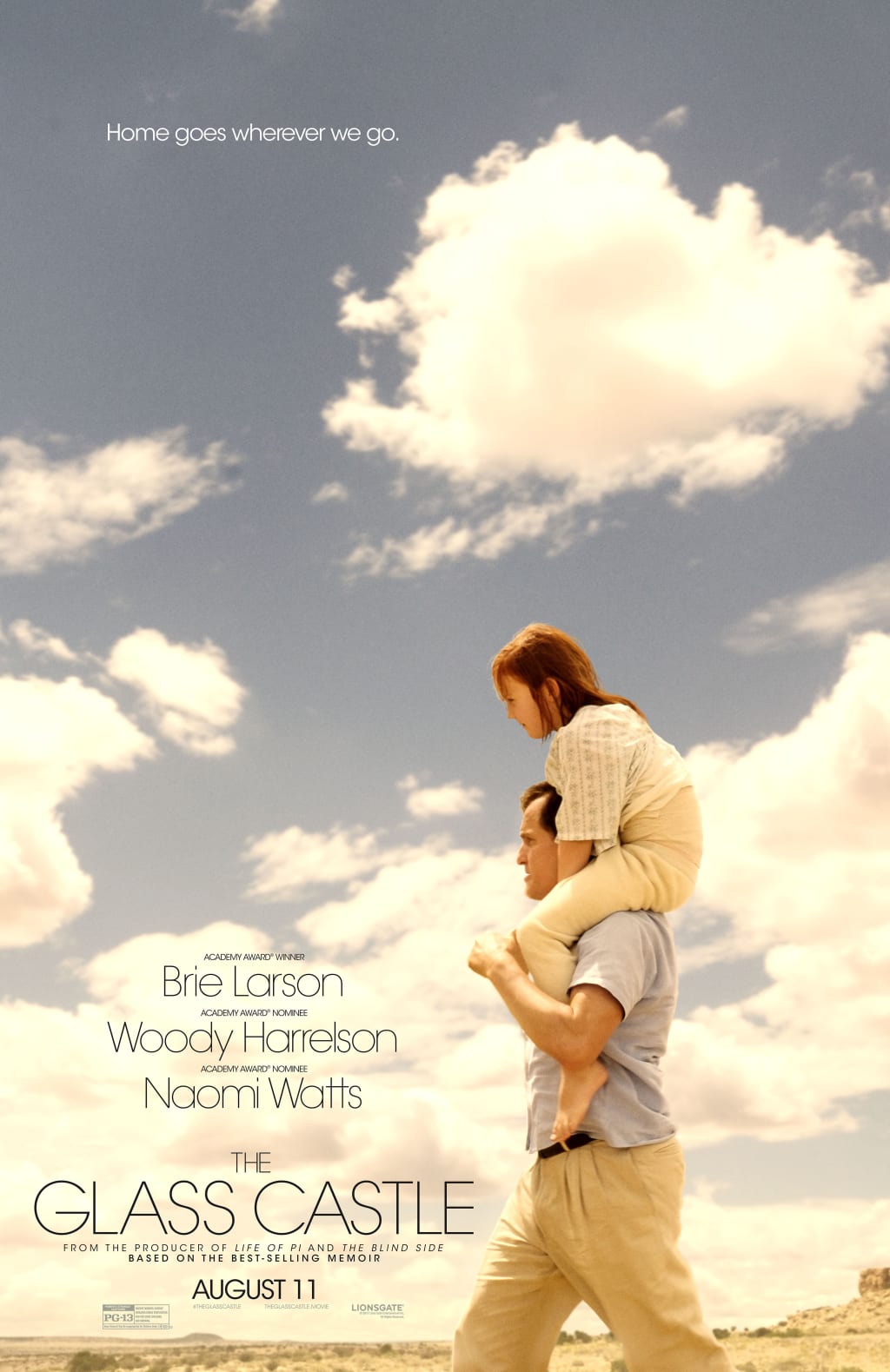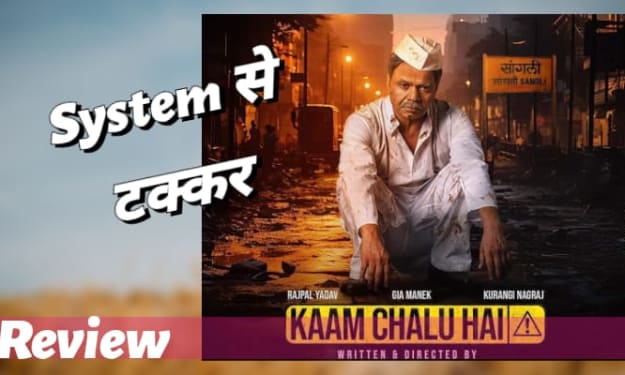Movie Review: The Glass Castle
Jeanette Walls' intimate memoir comes to the big screen.

When I was an up and coming young radio talk show host, I had the privilege of interviewing author Jeanette Walls about her remarkable memoir The Glass Castle. Normally, in prepping for an interview in talk radio, you don’t have time to read entire books, you’re forced to skim and pick and choose important portions to discuss in the brief time you have with your subject. In the case of The Glass Castle however, I was lucky enough to have a full weekend and in that weekend, I read the entire book because I simply could not stop myself.
The adage has it that you should never meet your heroes because they never live up to your idealized version of them. Jeanette Walls defied that adage in every way in my brief interview. Just as in her book she was charming, erudite, earthy, and fascinating. She had the kind of wit that comes from combining the mountains of West Virginia with the privilege of Park Avenue. In short, she was as delightful in voice, it was a phone interview, as she was in written form.
Given how harrowing that written form was, the human result is that much more remarkable. It is this version of Jeanette Walls that I took with me into the film adaptation of her remarkable memoir The Glass Castle. The film version stars Academy Award Winner Brie Larson and thank heaven for her, she resembled the Jeanette Walls of my brief but exciting memory.
The Glass Castle stars Larson as Jeanette Walls in 1989 when her career as a gossip columnist for New York Magazine has brought her the kind of fame and security she could never have imagined while growing up in poverty on a West Virginia mountainside. This Jeanette Walls is perfectly coiffed, stylishly dressed, and on the arm of a handsome, nebbishy financial adviser, played by New Girl star Max Greenfield, giving her even more of the fiscal security she never knew as a girl.
We also meet that young, insecure version of Jeanette, played by a pair of young actresses, Chandler Head and Ella Anderson, whose brilliant but damaged father Rex (Woody Harrelson) and scatterbrained artist mother Rose Mary (Naomi Watts) shuttle her from one place to the next always outrunning some bill collector or agent of law enforcement. When she was very young, alongside her three siblings, these changes in scenery seemed like an adventure with her father as part ringmaster and part wizard. As Jeanette comes of age however, the magic begins to wear off and the stench of her father’s alcoholism and emotional abuse becomes unbearable.
Director Destin Daniel Cretton employs a narrative style that flashes back and forth in time to underline these two very different pictures of the same young woman. On one hand, grown up Jeanette is chic and glamorous with just a hint of faking it. Then we flash back to the young Jeanette who, though desperately impoverished due to her father’s damaged psyche, still manages to educate herself and care for her siblings as they each make plans to escape their father.
Though the film never gets to what is so incredible about the book, how could it as it is as much Walls’ witty, thoughtful writing style as it is about her unique life-story, Cretton does manage to capture wonderful, memorable moments. As he did in his remarkable Short Term 12, Cretton creates intimacy between the characters and the audience. He connects us deeply on an emotional level with these characters through close-up and perspective shots that seem shine a light directly into the actors’ souls.
The intimacy of Short Term 12 bordered on painful as that film slowly revealed Larson’s lead character’s remarkable empathy and vulnerability. Sadly, The Glass Castle only captures a few moments of similar intimacy. A scene between Harrelson and Ella Anderson as teenage Jeanette finds the two lying in the snow staring at the stars and the father urging his daughter to choose a star, any star that she wants and it will be hers. It’s a lovely, graceful moment, beautifully played by Harrelson who captures exactly why someone like Rex would manage to keep people in his orbit even as his worst qualities would drive any sane person to run from him quickly.
Another great scene finds father and daughter, now grown into the Brie Larson version, reconciling with tears and memories in a scene of remarkable power. These are two actors at the height of their powers and their connection to each other becomes their connection to us and director Cretton’s tight perspective shots help to underline the intimacy of the moment. Watching the ice thaw between father and daughter with tears of equal pain and joy is a sight to behold and the reason why I can feel good about recommending you see The Glass Castle.
That said, the film is far from perfect. While moments like the star-gazing scene, the tearful reconciliation, and a final image of the finally fully formed Jeanette, are glorious pieces of art, the film struggles to bring life to the supporting players and stumbles over a few obvious metaphors. Don’t misunderstand me, the actors playing Jeanette’s siblings do fine work but they are underwritten and get something of a short shrift in the characterization department thus, lessening the impact of later scenes when a closer connection to these characters is required for the drama to really hit home.
The biggest miss, however, comes in depicting Jeanette’s life in 1989. Here Director Cretton lays things on way too thick from Jeanette’s shoulder-padded power suits to the desaturated, all too perfect yuppie apartment and especially the performance of Max Greenfield as the would-be fiancée who is little more than a pawn in this story, a way of emphasizing the parts of Jeanette that she pretends to desire because she’s not figured out how to marry her young self to her older, supposedly wiser self.
A scene where Jeanette sits primly and peacefully across a kitchen table in her immaculate New York City apartment from her soon-to-be-husband seems intended to recall similar artificial trappings from classic French relationship dramas to movies like American Beauty where the perfection of interior decoration was always intended as a mask for inner turmoil. The use of such metaphor here comes off as clumsy and affected compared to the existential peril that Walls worded so brilliantly in her book.
Let’s chalk that flaw up, however, to Mr. Cretton’s relative inexperience. The Glass Castle is only his third feature film and his first for a major Hollywood studio. He’s working with a new set of a crew members, a larger budget, more actors and the pressure of adapting a book that many believed could not be brought off the page. We can forgive a little clumsiness, especially when the movie contains moments of genuinely transcendent beauty and sadness.
About the Creator
Sean Patrick
Hello, my name is Sean Patrick He/Him, and I am a film critic and podcast host for the I Hate Critics Movie Review Podcast I am a voting member of the Critics Choice Association, the group behind the annual Critics Choice Awards.






Comments
There are no comments for this story
Be the first to respond and start the conversation.